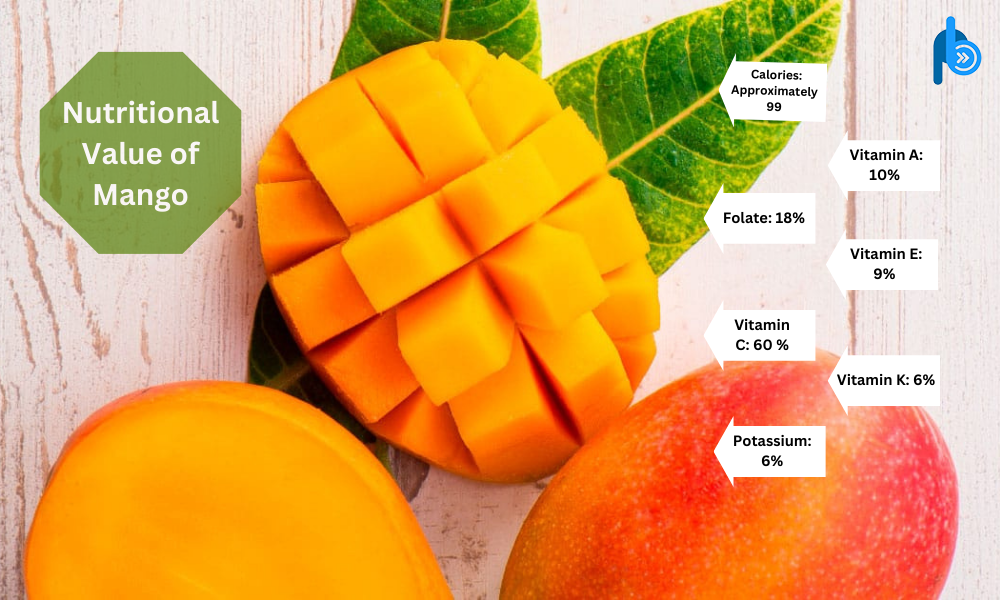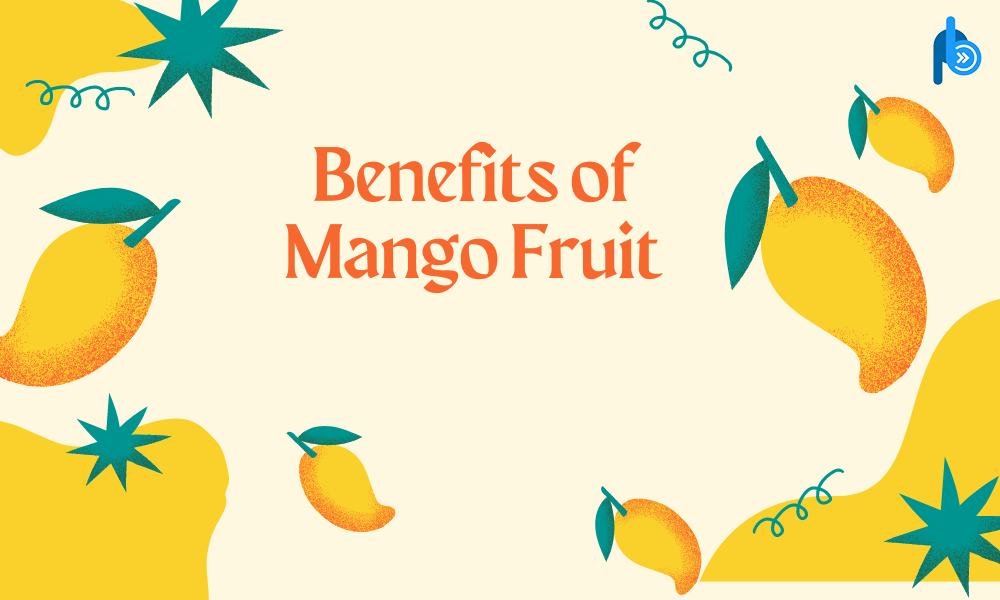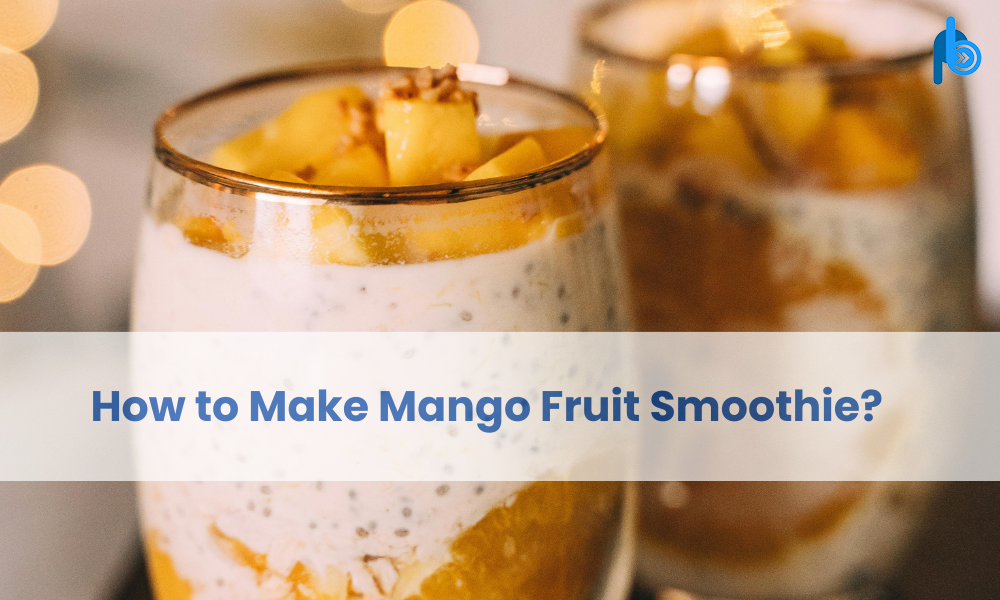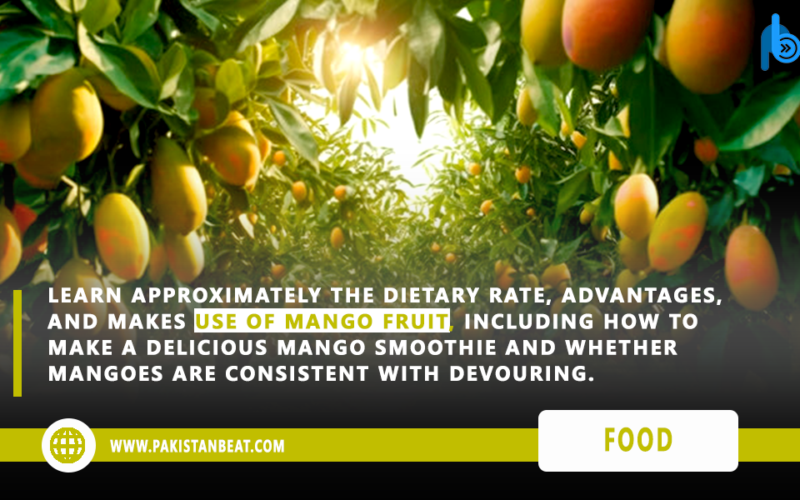Mango fruit, known as the “king of fruits,” is loved worldwide for its candy and juicy taste. This tropical delight has rich statistics and many types, making it a versatile and cherished addition to many dishes. But beyond its delicious taste, mango fruit boasts incredible health benefits and dietary prices. Let’s dive into the sector of mangoes and find out why this fruit deserves an opening in your diet.
What is a Mango Fruit?
Mangoes are tropical stone fruits belonging to the genus Mangifera and several species, the most common being Mangifera indica. Native to South Asia, mangoes have been cultivated for over 4,000 years. Depending on the cultivar, they are available in many shapes, sizes, and colours, from green to yellow to purple. Major developing areas encompass India, Mexico, Thailand, and the Philippines, each producing mangoes with first-rate flavours and textures.
Nutritional Value of Mango

Mangoes are a powerhouse of critical vitamins and minerals. A cup (100 grams) of sliced mango gives:
– Vitamin C: 60 % of the Recommended Daily Allowance (RDA)
– Vitamin A: 10% of the RDA
– Vitamin E: 9% of the RDA
– Vitamin K: 6% of the RDA
– Potassium: 6% of the RDA
– Folate: 18% of the RDA
– Calories: Approximately 99
In addition, mangoes contain small portions of various nutrients and minerals, similar to nutritional fibre, making them a nutritious choice.
Benefits of Mango Fruit

Mangoes provide numerous fitness benefits that can beautify your average well-being:
-Boosts Immune System: Rich in vitamin C, mangoes help strengthen the immune system and guard against infections.
– Promotes Healthy Skin: Mangoes contain vitamins A and E, essential for wholesome, sparkling pores and skin.
– Supports Eye Health: Mangoes contain beta-carotene, which the frame converts into nutrient Vitamin A, essential for actual vision.
– Aids Digestion: Mangoes contain enzymes that assist in breaking down proteins and fibre, aiding in clean digestion.
– Reduces Inflammation: The antioxidants in mangoes, alongside facet quercetin and mangiferin, help lessen infection and shield in the direction of sicknesses.
Is Mango Fruit Good for You?

Absolutely! Mangoes are packed with vitamins that assist with commonplace fitness. Various clinical studies have highlighted the fruit’s functionality in decorating digestion, improving the immune device, and preventing certain cancers. Its excessive fibre-content material fabric aids in keeping a healthful gut while the antioxidants fight off free radicals.
How Many Calories Are in One Mango Fruit?
The calorie content of a mango can vary depending on its length and variety. On average, a medium-sized mango (approximately 200 grams) contains about 100 and 150 calories. These energy sources are usually carbohydrates, with little protein and minimal fats. This makes mangoes a top-notch choice for a candy, low-calorie snack.
How to Make Mango Fruit Smoothie

Creating a mango smoothie is an easy and smooth manner to enjoy this delicious fruit. Here’s a fundamental recipe:
Ingredients:
– 1 ripe mango, peeled and chopped
– 1 cup of milk or a dairy-unfastened opportunity
– half of a cup of yoghurt
– 1 tablespoon of honey or maple syrup (non-compulsory)
– A handful of ice cubes
Instructions:
1. Place the mango, milk, and yoghurt in a blender.
2. Blend until easy.
3. Add honey or maple syrup if favoured.
4. Throw within the ice cubes and blend all other times until frothy.
5. Pour into a tumbler and experience!
Variations and Tips:
– Add a banana for added creaminess.
– Include spinach or kale for a green smoothie.
– Use coconut milk for a tropical twist.
Uses of Mango
Mangoes aren’t only for eating easy. They have a significant form of uses:
– Culinary Uses: Mangoes may be used in salads, salsas, cakes, and savoury dishes. Dried mangoes are a well-known snack, and mango chutney is a staple in many cuisines.
– Skincare and Beauty Products: Mango butter, derived from the fruit’s seeds, is applied in creams and lotions for its moisturising houses.
– Traditional Medicine: In some cultures, mango leaves and bark are used for their medicinal houses, which are believed to address several illnesses.
Is Mango Dangerous for Our Health?
While mangoes are typically steady to eat, there are a few worries to keep in mind:
– Allergies and Sensitivities: Some humans, especially those allergic to latex, can be allergic to mangoes. Symptoms can encompass itching, swelling, and trouble breathing.
– Overconsumption Risks: Eating too many mangoes can result in digestive troubles, together with diarrhoea, due to their immoderate fibre content material fabric.
Safe Consumption Guidelines: To avoid adverse consequences, it’s best to consume mangoes as part of a balanced eating regimen.
Conclusion
Mangoes are not highly delicious; however, they are incredibly nutritious, imparting many health blessings. From boosting your immune device to supporting digestion and promoting healthy pores and skin, there is absolute confidence that mangoes are a precious addition to any eating regimen. Whether enjoyed sparkling, in a smoothie, or as part of a dish, mangoes can beautify your culinary revel and assist your commonplace well-being.







